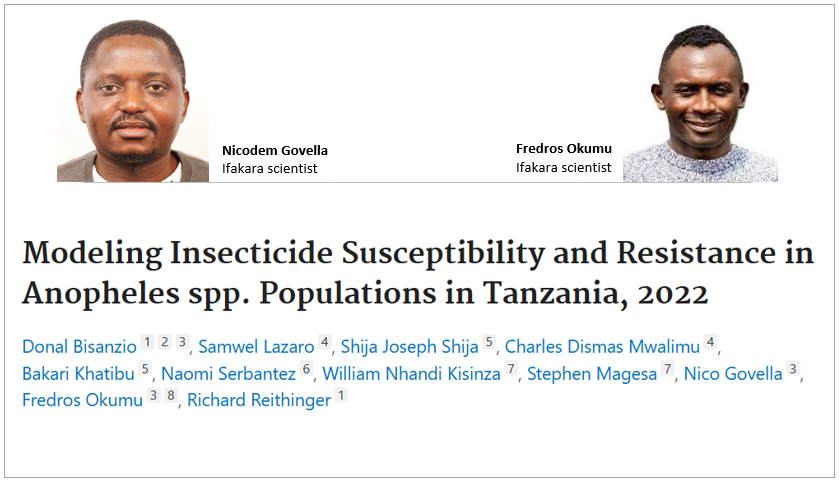
MALARIA FIGHT: Good news for most, warning for some

Tanzania’s recent study brings encouraging news: although nearly 100% of the country now shows resistance to pyrethroid insecticides, commonly used in bed nets and sprays, other classes like carbamates, organophosphates, and organochlorines remain highly effective across most regions.
This is a clear signal beneath the buzz: This means there's still strong potential to curb malaria—as long as we shift strategies wisely.
Findings of this study, titled: “Modeling Insecticide Susceptibility and Resistance in Anopheles spp. Populations in Tanzania 2022,” were published in the American Journal of Tropical Medicine and Hygiene recently.
Why this matters to community health
This isn’t just science—it’s a lifeline. With pyrethroids losing their effectiveness, millions could be left unprotected. The study highlights that switching to other insecticide types isn’t just smart—it’s essential for keeping mosquito control effective.
Behind the map: What the researchers did
The study was led by a diverse team—including experts from RTI International and, crucially, the Environmental Health and Ecological Sciences Department at Ifakara Health Institute. They built a nationwide picture of insecticide susceptibility by analyzing data from 2012–2021 and modeling predictions for 2022.
Key findings included:
- Pyrethroid resistance spans 99.8% of the country—a red flag given their widespread use.
- Carbamates resisted in just 7.4% of areas, organophosphates in 0.2%, and organochlorines 1.3%—meaning these options are still broadly viable.
- The mapping framework offers a dynamic tool for malaria control teams, enabling them to pivot quickly when resistance patterns shift.
What this means and what's next
- A change in insecticide strategy isn't just preferable, it's urgent—continuing pyrethroid use in most areas’ risks losing protection.
- Ifakara’s role shows the strength of local expertise in crafting real-time, actionable data for Tanzania’s health strategy.
Collaboration at the core: Ifakara joins partners
While Donal Bisanzio from RTI International, Washington led the study, two seasoned Ifakara Health Institute researchers: Nico Govella and Fredros Okumu - contributed to the study. The effort united multiple agencies, including Tanzania’s National Malaria Control Program, Zanzibar’s Malaria Elimination Program, and international partners like RTI International, USAID’s PMI, and University of Glasgow.
A human approach to policy action
At its heart, this study is about protecting families. Every homeowner hoping their child sleeps safely under a bed net, every mother in hospital, every health worker on the frontlines—this research gives them a lifeline. It says: “We see the challenge. We have alternatives. We can still win the fight against malaria.”
Read more here.
